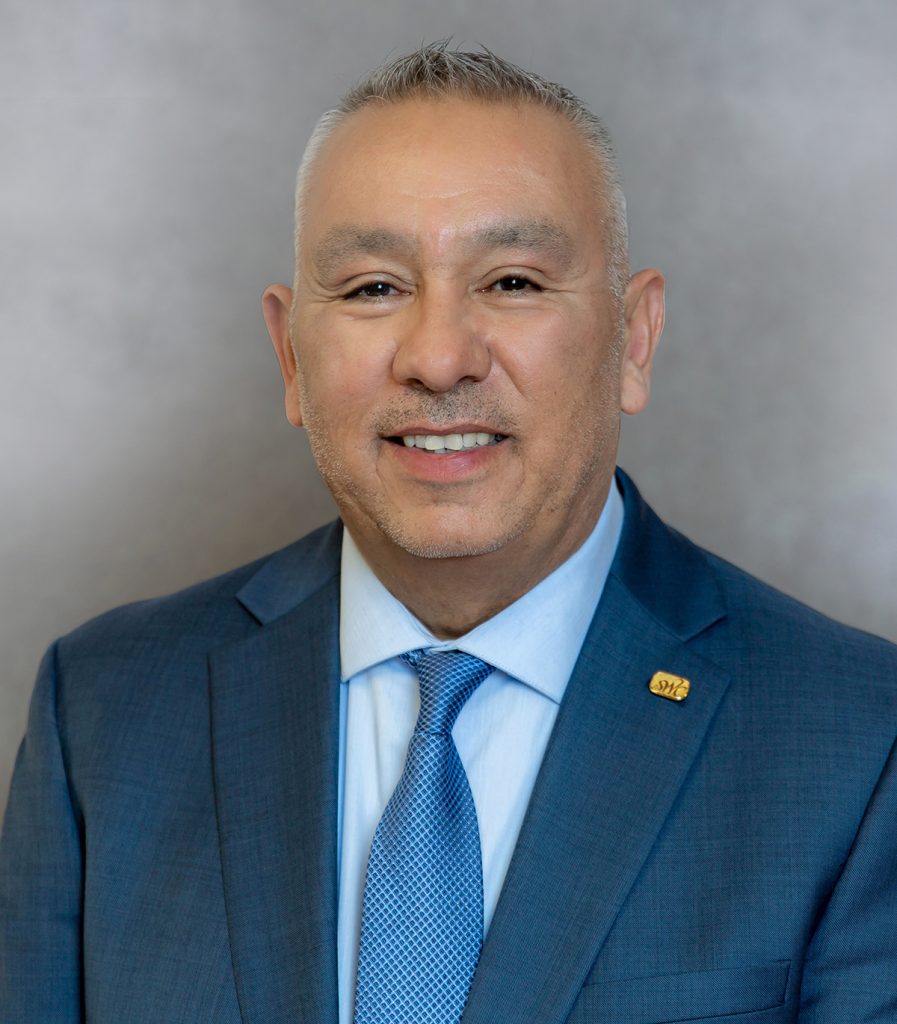
In a thought-provoking conversation, we discussed crucial topics regarding the Latino community with Dr. Mark Sanchez, President of Southwestern College. Dr. Sanchez, a respected figure in education, shared valuable insights on closing educational disparities and promoting equality.
Dr. Mark Sanchez’s original career aspiration was to become a high school teacher, a goal that would ultimately lead to a transformative experience. His initial assignment placed him in a unique setting—working with migrant education students in Salinas, California. These students, who undertook demanding fieldwork in the early morning hours and returned to the fields after their daily classes, provided Dr. Sanchez with a profound lesson in life. “While I was teaching United States History, they were teaching me about life, resilience, perseverance, dedication. It was a two-way learning experience. It was one of the most amazing experiences I’ve ever had in my professional career.”
Dr. Sanchez’s journey, marked by profound experiences like the one in Salinas, offers a compelling testament to the pivotal roles of education and mentorship. His parents, especially his mother who worked as an educator, instilled the value of working with people. His experiences in California’s Central Valley, encounters with influential figures like Dolores Huerta, American labor leader and civil rights activist, Professor Sharon Brown Welty from Fresno State who encouraged Dr. Sanchez to pursue his doctorate program, and Professor Mary Conklin from Point Loma Nazarene University who embraced the importance of researching as an undergrad, all served to help reinforce these principles. Throughout his journey, mentors and role models consistently emphasized the significance of education and investing in people.
While Dr. Sanchez’s journey has been shaped by influential mentors and role models who emphasized the value of education and mentorship, his philosophy also extends to the broader community. He recognizes the significance of being well-informed about the economic landscape, a philosophy that aligns with his commitment to empowering others. During our interview, Dr. Sanchez recommended reviewing the San Diego County Economic Development Corporation’s inclusive economy report for valuable insights into the region’s economic future. This report reveals a critical statistic: 84% of jobs expected to emerge between now and 2030 will require a degree, certificate, or credential. It also highlights that 65% of the low-income community in the region comprises Black and Latino students and individuals, with 52% of Hispanic and 61% of Black households categorized as low income (https://2023.inclusivesd.org/).
Dr. Sanchez’s emphasis on these numbers underscores the critical need to confront economic disparities and promote greater equity, especially within minority communities. “When we talk about mentoring Latino students or mentoring the Latino community, their success is predicated long before they arrive on a college campus. And what the data is telling us is that our Black and Latino communities are being put on the margins in terms of having access to quality education, having access to resources.” he continues, “Economic conditions for the Latino community are not improving. Black and Hispanic individuals are disproportionately impacted when it comes to educational attainment and high paying careers… There’s a lot of data points that show that we’re being excluded from being competitive in this regional economy, and it’s something that has to change.”
To address these challenges, Dr. Sanchez believes in creating an “ecosystem” that starts nurturing opportunities for young members of the community from a very early age. He states “Scaling that effort to create more pathways to early exposure to college and early pathways to college and career for our communities is a critical strategy in this work.” He stressed, “We have to look at the solution from a systematic approach that incorporates early childhood education, quality K through 12 education, a pathway to post secondary and career preparation, especially in STEM and other industries that are needed in this region, that are going to provide a pathway for people to quality jobs in this region.”
Dr. Sanchez highlighted the importance of framing these opportunities, stating, ” Students have to be able to see what each pathway really means, outside of just words. It’s no longer a message of, ‘You can go to college.’ I think it is important to say ‘You can go to college and through a college education, you can become a nurse, a computer programmer, a bio or mechanical engineer…’ and then exposing people to what those industries really mean and what they really do. It has to be contextualized.“
Dr. Sanchez’s commitment to nurturing the educational journey of underrepresented communities is best summarized in his own words, as he stated “I think there’s a lot of follow up that needs to occur. Because we can’t just go out and present to students and their families one time and say, okay, they should know it all now. We have to create multiple exposure points, to our community, to the programs that are available at colleges and universities, and then really create a vision for students to see themselves fitting into that pathway” Dr. Sanchez then shared how at Southwestern College, the campus focuses on planning their programs in a way that serves students from an early stage, as early as middle school, through programs like early college and dual enrollment. This proactive approach involves mapping out services and support well before students arrive at the college, starting as early as the 10th grade, to ensure they have access to college credits and opportunities for academic advancement.
In light of his lifelong commitment to education, Dr. Sanchez’s parting advice perfectly encapsulates his dedication to nurturing the educational journey of underrepresented communities. The advice boiled down to a simple yet powerful message: “Have a vision for your education, your future, your career. And then begin to ask questions of people who know how to get you there. Reach out to someone, connect with someone to truly set yourself on a path to achieve the vision you’ve set for yourself.”
Article by Pollyana Ramos Tucker
